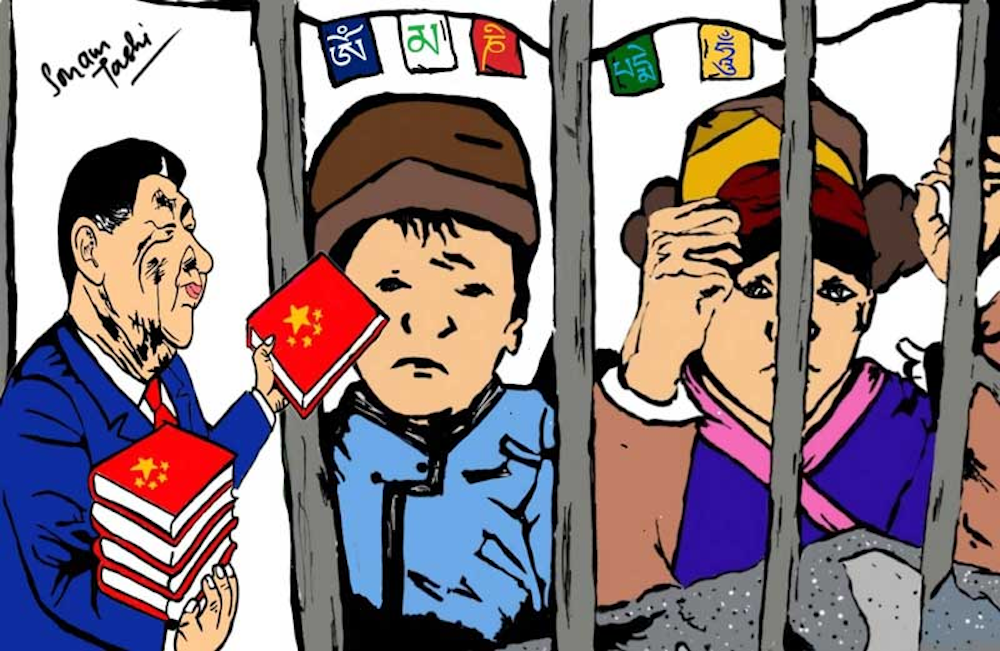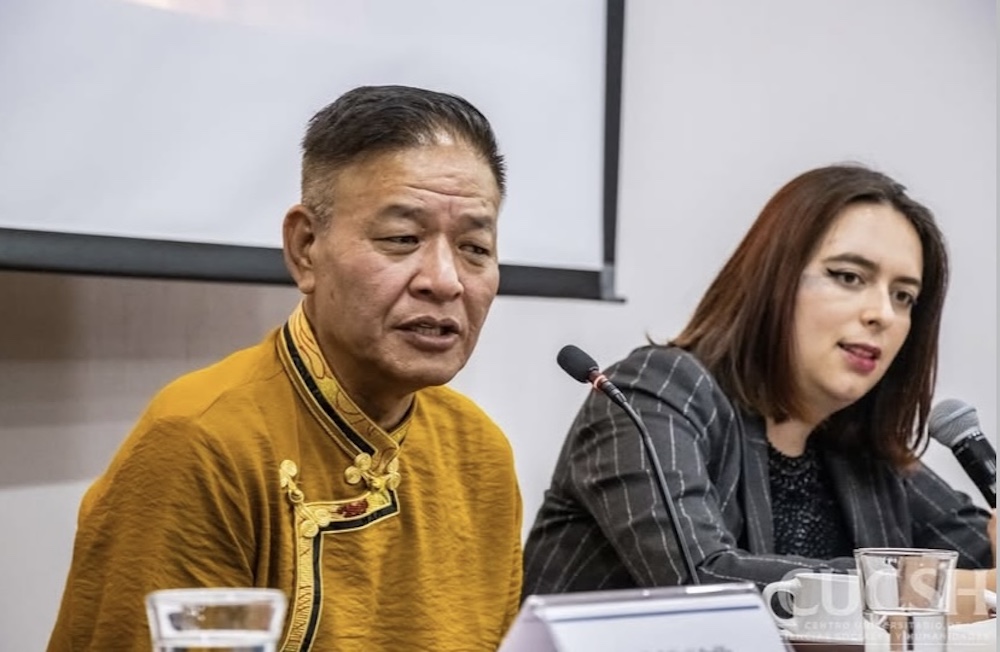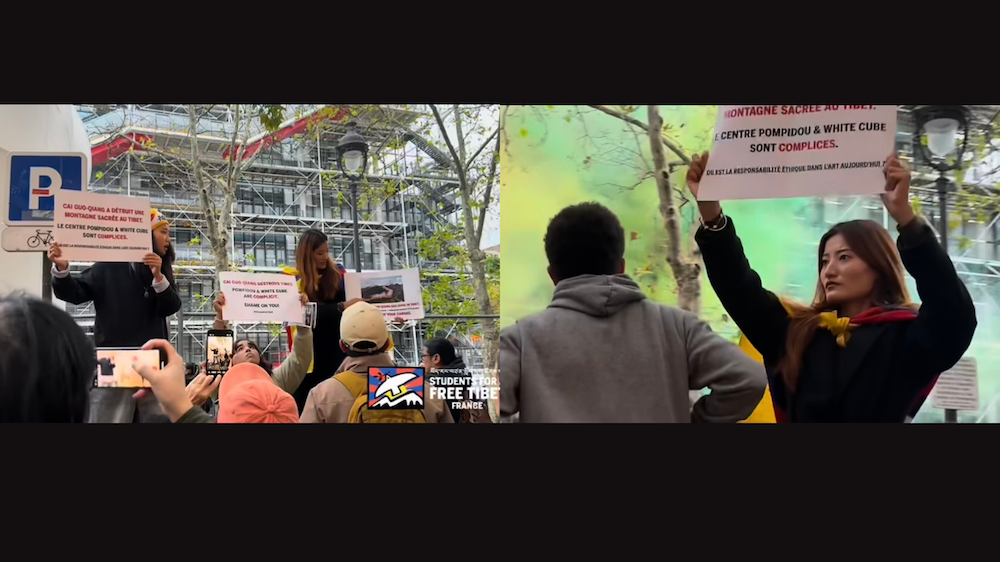By Tsering Dhundup
DHARAMSHALA May 10: The Chinese government under its larger quest to sinicize Tibetans from a young age, issued a notice in Dzatoe County in occupied Tibet that mandated parents to send their children to Chinese colonial residential schools or face prosecution and even loss of educational benefits.
On February 6, 2023, UN experts warned that around a million Tibetan children were being affected by Chinese government policies aimed at assimilating Tibetan people culturally, religiously and linguistically through the residential school system. These residential schools provide educational content and an environment centered around Han culture, according to the independent experts: Fernand de Varennes, UN Special Rapporteur on minority issues, Ms Farida Shaheed, Special Rapporteur on the Right to Education, Alexandra Xanthaki, Special Rapporteur in the field of cultural rights
The experts also were concerned about the substantial increase in the number of residential schools operating in and outside of the so called Tibet Autonomous Region, and the number of Tibetan children living in them. The percentage of students in boarding schools in China is more than 20 per cent, but the experts said according to the information they received, the vast majority of Tibetan children, around a million are forced into these institutions.
The increase has been achieved through closing rural schools in areas that tend to be populated by Tibetans, and replacing them with the township or county-level schools where teaching and medium of instruction are almost exclusively in Putonghua (standard Mandarin). “Many residential schools are situated far from the family homes of students boarding in them,” the experts continued. They said Tibetan children are forced to complete a “compulsory education” curriculum in the Mandarin Chinese language, or Putonghua, with no access to traditional or culturally-relevant learning.
In 2010, Beijing implemented a bilingual education policy in Tibet and other occupied regions (or as Beijing calls them, “minority regions”). Those policies refer to principles enshrined in the Chinese constitution, which stipulate that the languages of minority regions be protected and preserved. However, the policies seek to achieve the exact opposite and promote deeper penetration of the Chinese language and Chinese narrative in those regions.
Since the implementation of these policies, large numbers of Tibetans have gone through indoctrination-focused education systems. An alarming report published by the Tibet Action Institute in December 2021 highlighted the grim reality. Based on testimonies, the report, titled Separated From Their Families, Hidden From the World, showed that 78 per cent of Tibetans have attended Beijing-run boarding schools where classes are primarily taught in Chinese, depriving them of their identity and language.
“So this is bilingual education: In theory, it means you can do both [languages]. It sounds beautiful. But in practice, the working language [in schools and offices] even at the township [rural] level is becoming Chinese”, a Tibetan university professor interviewed by Human Rights Watch, 2018 said.










